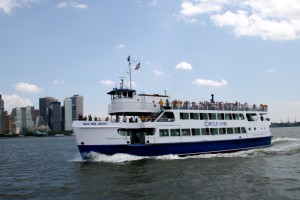 In the spring of 2010, students in Rutgers University Communicating Ocean Science to Informal Audiences (COSIA) had a chance to work with professional educators (right here on the COSEE NOW site) to develop lessons and activities about Marine Transportation and Maritime Security related theme.
In the spring of 2010, students in Rutgers University Communicating Ocean Science to Informal Audiences (COSIA) had a chance to work with professional educators (right here on the COSEE NOW site) to develop lessons and activities about Marine Transportation and Maritime Security related theme.
Originally, these activities were designed for informal audiences, but they can be easily modified for use in the classroom. Depending on the materials involved, they can be setup as either a classroom demonstration or duplicated for use in small groups.
 Here are the activities the students developed and the recommended presentation format.
Here are the activities the students developed and the recommended presentation format.
- Dont get TIDE UP Up: This activity demonstrates how water level changes due to the changing of high and low tides can affect when cargo ships can travel under bridges. Download the example tide datasheet. (class demonstration)
- Weeds in the Waterways: Hands-on activity that explores how invasive species are transported in the ballast water of ships using a toy boat model. Also download the information cards on real invasive species and their impacts. (class demonstration)
- How Did That Get There? Marine Pollution: Interact with a model that shows non-point source pollution as compared to point source pollution like an oil tanker spill. (class demonstration)
- Ports and Estuaries: Build a model showing how port construction impacts marine life in an estuary. (class demonstration)
- To Float or not to Float: Look at how ships float differently in ocean water (salty) and harbor water (brackish, or less salty due to fresh water from rivers), and how cargo loading and the effects of wind and currents can affect their buoyancy. (small groups)
- Clean Up Your Act: Marine Oil Spills: Several stations allow students to observe how oil floats on water and experiment with different methods of cleanup, and another station allows them to try cleaning oiled feathers. This activity provides hands-on experience to see how difficult it is to clean up an oil spill. (small groups)
We encourage you to further refine and adapt these activities for your classrooms or informal setting. Please let us know below if you used these activities and how you changed them.
Comments are closed.